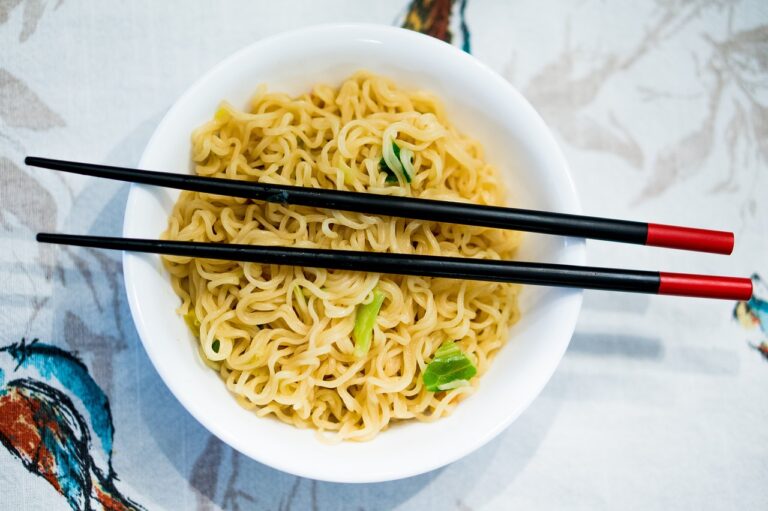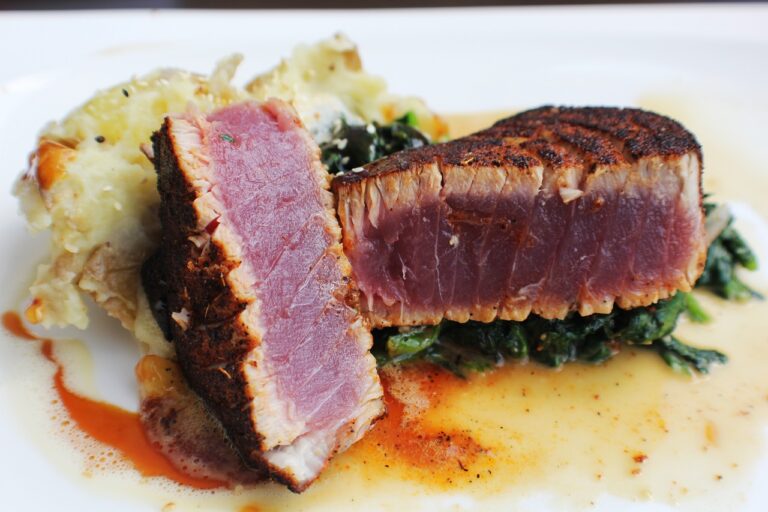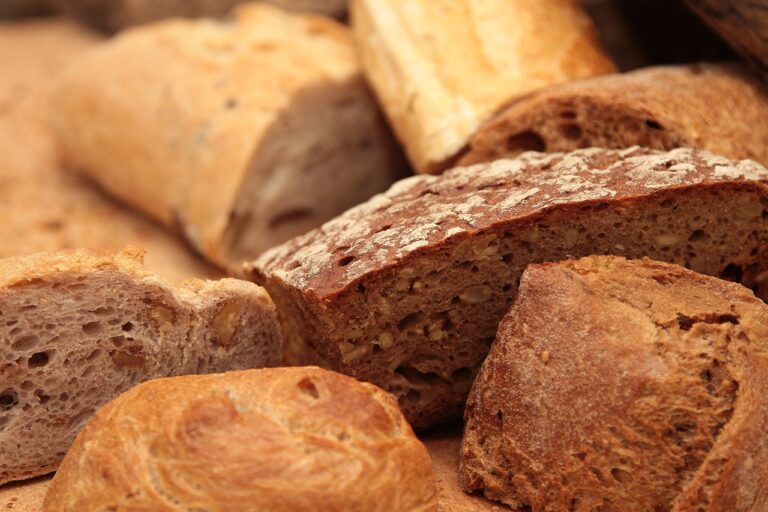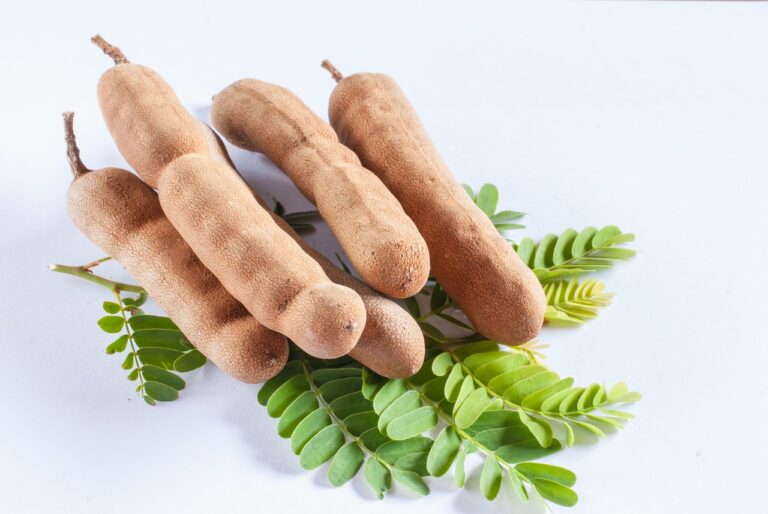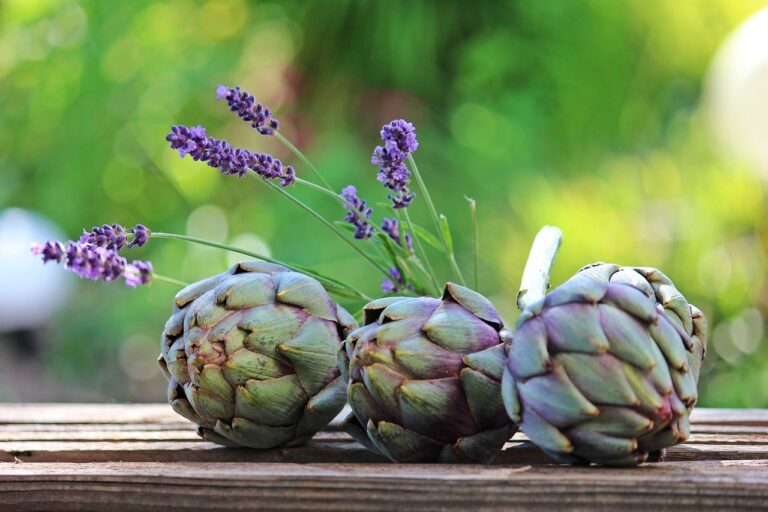10 Surprising Reasons Why You Are Craving Spicy Food
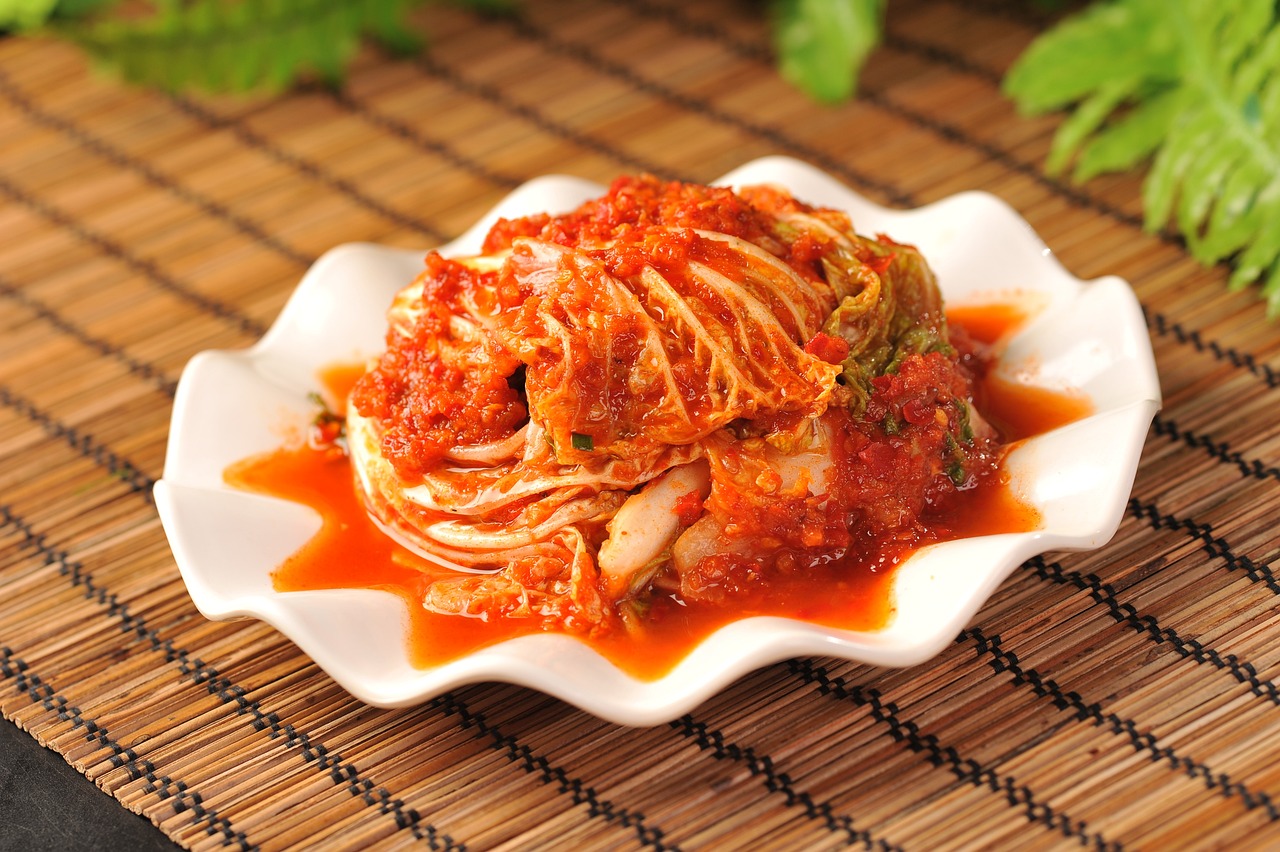
Spicy food has, for many cultures, been an integral part of culinary traditions. From fiery curries in India to spicy tacos in Mexico, the allure of chili peppers and other hot ingredients is undeniable. But why do so many of us find ourselves craving these fiery flavors? This article explores ten reasons behind our love for spicy foods.
Why Am I Craving Spicy Food?
1. Evolutionary Advantage
Historically, humans have gravitated towards certain flavors because they offered survival benefits. Eating spicy foods may have reduced the risk of consuming spoiled food, as capsaicin – the compound responsible for the heat – possesses antimicrobial properties.
Furthermore, in hot climates where food spoils quickly, spicy ingredients might have helped to preserve food and keep it safe for consumption. This evolutionary advantage could have led to a genetic predisposition to enjoy and crave spicy flavors.
2. Endorphin Rush
When you eat spicy food, your mouth and throat sense the heat, leading your brain to release endorphins. These chemicals act as natural painkillers and can produce a feeling of euphoria similar to a “runner’s high.”
This pleasurable sensation can make spicy foods addictive. As we continue to seek out this endorphin rush, our tolerance to spicy foods can increase, leading us to crave even spicier dishes to achieve the same effect.
3. Temperature Regulation
Spicy foods can induce sweating, which can be cooling for the body. In hot climates, eating spicy dishes might help regulate body temperature by promoting perspiration and thus cooling the skin.
This cooling effect, combined with the flavorful taste of many spicy dishes, might explain why so many hot countries have spicy culinary traditions. The body’s natural reaction can lead to a preference for and craving of spicy foods in warmer climates.
4. Metabolic Boost
Capsaicin, the active component in chili peppers, is known to boost metabolism, albeit temporarily. This metabolic boost can lead to increased calorie burning and a feeling of warmth.
For those who are health-conscious, the perceived benefits of an increased metabolism might be a driving factor in their craving for spicy foods. Over time, the desire for these benefits can lead to a consistent craving for spicy dishes.
5. Culinary Adventure
For many, trying spicy foods is akin to an adventure. The thrill of tasting something intensely flavored and the challenge of withstanding the heat can be exciting.
As globalization introduces diverse cuisines to different parts of the world, people are exposed to a variety of spicy dishes. This exposure can foster an appreciation and eventual craving for fiery flavors as individuals seek culinary experiences.
6. Sensation Enhancement
Spicy foods can amplify other flavors in a dish. The heat from the spices can heighten the taste of sweetness, sourness, and other flavors, making the overall dish more vibrant and enjoyable.
This enhancement of flavors can make spicy foods particularly appealing. As individuals experience the depth and richness that spices bring to a meal, they may find themselves craving these intense and layered flavor profiles.
7. Social Bonding
Sharing spicy foods can be a bonding experience. Whether it’s challenging friends to try the hottest sauce or bonding over a spicy meal, these experiences can create lasting memories.
For many, these social interactions centered around spicy foods can lead to positive associations. As a result, the craving for spicy foods might not just be about the flavor but also the memories and emotions tied to past experiences.
8. Dietary Benefits
Spicy foods often come with a host of dietary benefits. They can be rich in vitamins, antioxidants, and other essential nutrients. For example, chili peppers are packed with vitamin C.
Being aware of these benefits, health-conscious individuals might be more inclined to incorporate spicy foods into their diet. Over time, as the body becomes accustomed to these foods, it might start to crave them more frequently.
9. Cultural Influence
For many, the love for spicy foods is rooted in cultural or familial traditions. Growing up in a culture where spicy foods are the norm can naturally lead to a preference for these flavors.
Cultural celebrations, family gatherings, and traditional recipes can all play a role in shaping one’s palate. These deep-rooted associations can lead to a lifelong craving for the spicy foods that evoke feelings of nostalgia and belonging.
10. Sensory Novelty
For some, the sensation of eating spicy foods is unlike any other. The tingling, burning, and warmth can be novel and intriguing, especially for those not accustomed to spicy flavors.
The unique sensory experience can make spicy foods appealing to many. As individuals seek out new and diverse sensations, they might find themselves reaching for spicy dishes more frequently.
Craving Cheese And Spicy Food
Craving cheese and spicy food can be attributed to the body’s desire for a rich source of calcium and the thrill of capsaicin, respectively. Cheese provides essential nutrients like protein and fat, which can be comforting and satisfying. Spicy foods stimulate the release of endorphins, creating a natural high that can be addicting.
The combination of creamy cheese and the kick from spicy food offers a unique taste experience that appeals to many. This craving might also indicate a need for more varied flavors and textures in one’s diet, pushing one towards these intense flavors. Ultimately, indulging in cheese and spicy foods can be a way to satisfy specific dietary cravings while enjoying a sensory eating experience.
Craving Spicy Food After Working Out
Craving spicy food after working out may stem from the body’s increased metabolism and the need for replenishment. Exercise induces sweat, and similarly, spicy foods cause sweating, which can be perceived as a way to cool down the body. The endorphin rush from physical activity can be complemented by the endorphins released when eating spicy food, enhancing the post-workout high.
This craving might also reflect the body’s need for more flavorful foods to satisfy an enhanced sense of hunger after burning calories. Spicy foods can stimulate the appetite, making them more appealing after exercise. It’s a way for the body to signal a desire for immediate, intense taste sensations to reward physical exertion.
Craving Spicy Food And Chocolate
Craving spicy food and chocolate together may indicate a desire for a complex flavor profile that balances heat with sweetness. Chocolate, especially dark chocolate, contains mood-enhancing compounds like theobromine and serotonin, which can elevate one’s mood and create a feeling of pleasure. When combined with spicy food, the heat from the spices can intensify the sensory experience, making the chocolate taste even richer.
This craving could also suggest a need for an emotional or stress-related comfort, as both spicy foods and chocolate are known to trigger the release of endorphins. The unique combination of spiciness and sweetness caters to a broad spectrum of taste buds, offering a multifaceted eating experience. It’s a culinary adventure that satisfies both the need for stimulation and comfort.
Craving Spicy Food At Night
Craving spicy food at night may be linked to the body’s craving for stimulation and excitement after a day of routine activities. Eating spicy food can increase heart rate and metabolism, which can feel invigorating during the evening’s quieter hours. This craving might also be a response to boredom or stress, with the intensity of spicy food providing a distraction and a way to unwind.
Nighttime cravings for spicy food could indicate a lack of certain flavors or nutrients in the day’s earlier meals, leading the body to seek out something with a strong taste profile. It can also be a comforting habit or a pleasurable way to end the day on a high note. Spicy foods have the potential to disrupt sleep due to their stimulating effects, so this craving might represent a balancing act between seeking pleasure and the need for rest.
Craving Spicy Food During Period
Craving spicy food during a period is often the body’s way of coping with menstrual discomfort. Spicy foods can act as a natural pain reliever by releasing endorphins, which help to diminish the perception of pain. This craving may also be tied to hormonal fluctuations that affect taste preferences, making one lean towards more intense flavors.
The heat from spicy food can also provide a sense of warmth and comfort, which is especially appealing during the cramps and chilliness associated with menstruation. It’s a way for individuals to seek comfort and distraction from menstrual discomfort through the pleasure of eating. Additionally, the craving for spicy food during this time might be part of a broader set of PMS symptoms, where unusual or intense food cravings are common.
Craving Spicy Food During Pregnancy
Craving spicy food during pregnancy is a common phenomenon, often due to hormonal changes that alter taste preferences and smell sensitivity. Pregnant women might crave spicy foods as a way to combat morning sickness or to enhance a blunted sense of taste. The excitement of spicy flavors can offer a sensory thrill in a time of dietary cautiousness and restrictions.
These cravings could also indicate a need for more varied nutrients or an unconscious desire to increase calorie intake to support the growing fetus. Some theories suggest that craving spicy food is the body’s way of inducing sweating, which can cool the body, providing relief from the increased body temperature associated with pregnancy. Ultimately, indulging in spicy foods can satisfy the craving for intense flavors and provide a sense of comfort and normalcy during pregnancy.
Craving Spicy Food Spiritual Meaning
Craving spicy food can sometimes be interpreted as having a spiritual meaning, representing a desire for more excitement and passion in one’s life. The heat and intensity of spicy foods are thought to stimulate the body’s energy centers, or chakras, promoting a sense of vitality and aliveness.
This craving might indicate a subconscious push towards self-transformation or the need to add some ‘spice’ to one’s daily routine. In some spiritual traditions, spicy food is believed to clear negative energy and foster clarity of mind, making it a tool for purification. Craving spicy food could also symbolize a yearning for adventure or a desire to break free from monotony. It’s a physical manifestation of the soul’s hunger for experiences that ignite the senses and challenge the spirit.
Craving Spicy Food When Sick
Craving spicy food when sick might be the body’s intuitive way of seeking out natural remedies to alleviate symptoms. Spicy foods can act as decongestants, helping to clear nasal passages and relieve congestion. The capsaicin in spicy foods is known for its anti-inflammatory and antibacterial properties, which can support the immune system in fighting off infections.
This craving may also be due to a desire to enhance taste sensations, which can be dulled during illness. The heat and intensity of spicy food offer a sensory boost that can make eating more enjoyable when feeling unwell. It’s a natural inclination towards foods that not only comfort but also potentially aid in recovery by stimulating the body’s healing processes.
Craving Spicy Food When Stressed
Craving spicy food when stressed is a common response to the body’s need for a natural stress reliever. The capsaicin in spicy foods triggers the release of endorphins, the body’s natural pain and stress fighters, providing a sense of relief and well-being. This craving might also be a form of self-medication, as the intensity of spicy food can momentarily distract from stressful thoughts and emotions.
Eating spicy food can be a sensory experience that demands focus, diverting attention away from stressors and onto the act of eating. The pleasure derived from overcoming the challenge of eating something spicy can also provide a sense of accomplishment and control. It’s a way to combat stress through a physical sensation that is both stimulating and comforting.
Craving Spicy Salty Food
Craving spicy salty food can indicate a desire for flavors that are both intense and satisfying. The combination of salt and spice enhances taste, making food more appealing and stimulating to the palate. This craving might also be linked to the body’s need for electrolytes, which can be depleted through sweating and need replenishment.
Salty spicy foods can trigger the release of dopamine, a neurotransmitter associated with pleasure and reward, making these foods particularly addictive. The craving could reflect a need for comfort or a way to satisfy a hunger for more dynamic and exciting taste experiences. It’s a desire for culinary adventures that not only tantalize the taste buds but also provide a sense of satisfaction and fullness.
Craving Vinegar And Spicy Food
Craving vinegar and spicy food can stem from a need for strong and pungent flavors that awaken the senses. Vinegar, with its sharp acidity, complements the heat of spicy food, creating a complex flavor profile that can be intensely satisfying. This craving might also indicate a desire for foods that stimulate digestion, as both vinegar and spicy foods can boost metabolism.
The combination of vinegar and spice could be appealing for its perceived health benefits, including improved digestion and circulation. It’s a way to enjoy foods that feel cleansing and invigorating, offering a sense of purification and renewal. Craving these flavors can be a body’s way of seeking balance, aiming to counteract a bland diet or to stimulate an appetite that feels sluggish.
How To Stop Craving Spicy Food
To stop craving spicy food, it’s helpful to understand the underlying reasons for the craving, such as a desire for excitement or comfort. Gradually reducing the heat level in foods can help the palate adjust to less intense flavors, making milder dishes more appealing. Incorporating a variety of flavors and textures into meals can also satisfy the need for sensory stimulation without relying solely on spiciness.
Staying hydrated, especially with water or milk, can lessen the craving by diluting the capsaicin’s effect on taste buds. Engaging in stress-reduction techniques like meditation or exercise can reduce the emotional triggers that lead to spicy food cravings. Finally, focusing on the nutritional balance of meals can ensure that the body receives all the necessary nutrients, reducing the likelihood of specific food cravings as a signal of dietary deficiency.
Suddenly Craving Spicy Food
Suddenly craving spicy food can be a sign of a body seeking sensory stimulation or a nutritional need. It might indicate a deficiency in certain nutrients that spicy food is perceived to satisfy or a desire for the psychological boost that the capsaicin in spicy foods provides. This sudden craving can also be a response to boredom or stress, where the body seeks the excitement and endorphin rush that comes from eating spicy foods.
Environmental factors, such as exposure to spicy food through social media or friends, can also trigger sudden cravings. It’s a way for the body to communicate its need for variety or a change in dietary habits. Understanding and acknowledging these cravings can lead to healthier ways of satisfying them, ensuring that the body’s needs for stimulation, nutrition, and comfort are met.
Conclusion
Craving spicy foods is a multifaceted phenomenon influenced by biology, culture, personal experiences, and more. Whether it’s for the thrill, the health benefits, or simply the love of the flavor, spicy foods have captivated the palates of many worldwide. Embracing this fiery passion can lead to culinary adventures, health benefits, and unforgettable experiences.

